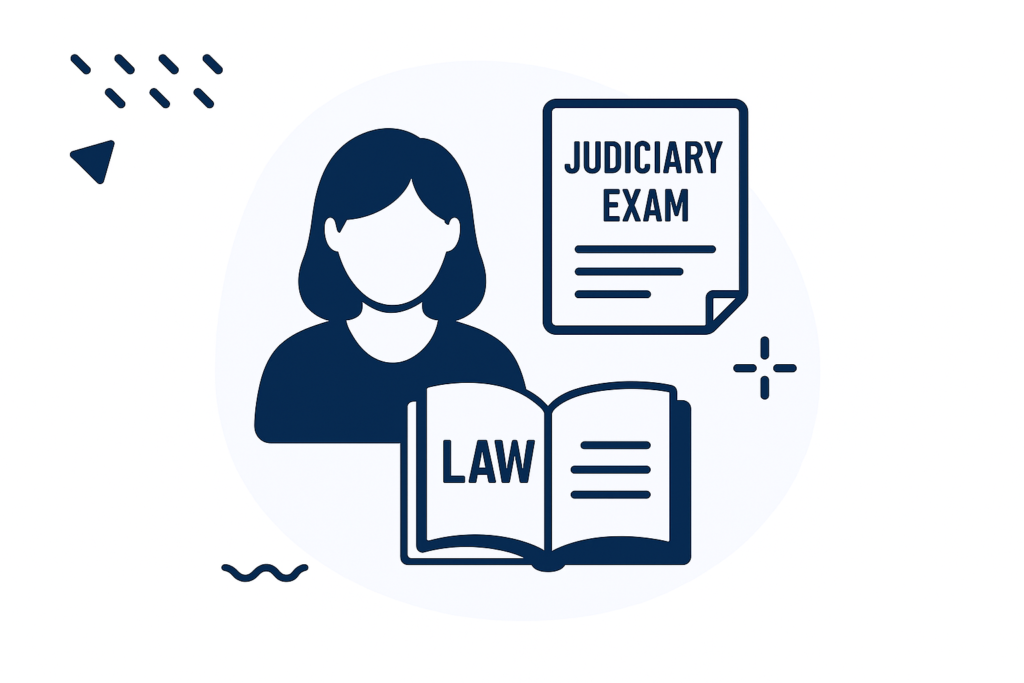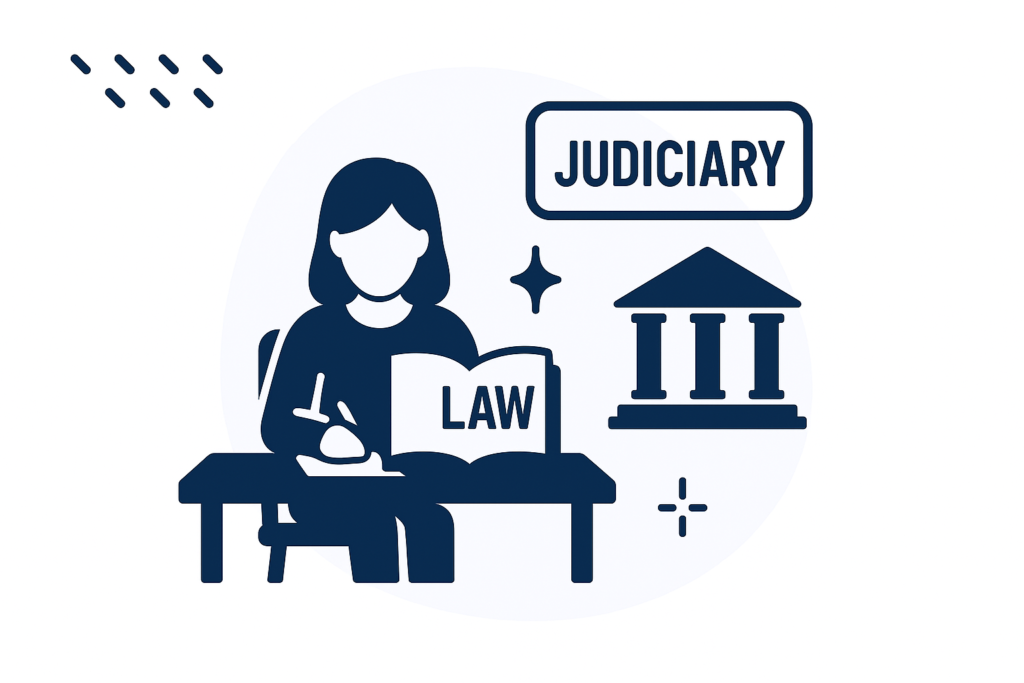“It’s not about the hours you study; it’s about the quality and consistency of your effort!” Every judiciary aspirant often wonders, “How many hours should I study?” While there’s no one-size-fits-all answer, smart time management and a quality-focused approach are key.
This guide will help you craft an efficient study plan, prioritize tasks, and maintain a balance that works for you. With a focus on quality study, along with a well-structured schedule, you can stay on track to crack the judiciary exam. Let’s dive in and make your preparation smarter, not harder!
Step 1: Understand Your Starting Point

Foundation
If you’ve recently graduated from law school or have solid legal experience, you may need fewer study hours compared to someone revisiting subjects after a long gap. Focus on building a strong base and targeting weak areas.
Gaps in Knowledge
Identify and address gaps in your understanding. The more gaps, the more hours you’ll need to dedicate to mastering those areas. Self-assess by reviewing previous exams or mock tests to pinpoint weak spots.
Step 2: Quality Over Quantity
Effective Learning
It’s not about how many hours, but how you use those hours.
- 6 hours of focused, distraction-free study is far more productive than 10 hours of passive reading.
Active Learning Techniques
- Active Recall: Test yourself regularly
- Teach Others: Explaining concepts improves retention
- Self-testing: Use quizzes or write short summaries
Step 3: Tailor Your Daily Study Hours
General Rule
For most aspirants, 6-8 hours of study per day is ideal.
- Break it into reading, writing practice, revisions, and mock tests.
Peak Preparation Phase (Last 3-4 months)
As the exam date approaches, intensify your study time to 10-12 hours daily for:
- Intensive revision
- Practice tests
- Focused learning sessions
Step 4: Balance Study and Rest
Breaks are a Must
- Short breaks (5-10 mins) every 1-2 hours for maximum productivity!
- Take longer breaks during meals or after a few hours of focused study.
Sleep = Superpower
- 7-8 hours of sleep is non-negotiable for cognitive function and memory.
- A rested mind is a sharp mind.
Step 5: Customize Your Study Plan
Personalize Your Schedule
Identify your most productive times during the day.
- Morning person? Start early!
- Night owl? Late-night study could work better!
Regular Progress Assessments
Evaluate yourself weekly to ensure you’re on track:
- If you’re meeting your targets, great!
- If not, adjust your plan ; tweak your study hours or focus on weak spots.
Step 6: Consistent Revision

Daily Revision
Set aside dedicated time each day for revising past topics.
- Spaced repetition is key to retention!
- Review notes and summaries regularly.
Mock Tests
- Take weekly mock tests under timed conditions
- Identify weak areas and rework them.
Step 7: Mental & Physical Well-being
Physical Exercise
Exercise isn’t just for fitness ; It’s for your brain!
- Incorporate at least 20-30 minutes of physical activity per day.
- It improves focus, reduces stress, and boosts memory.
Mindfulness & Relaxation
Meditation and breathing exercises can significantly enhance focus and reduce anxiety.
- A calm mind = Better decision-making and clarity!
Conclusion: Quality + Consistency = Success!
The question of how many hours to study doesn’t have a single answer. What matters is how you utilize those hours. The path to cracking the judiciary exam is consistent, quality-focused study, effective time management, and a balance between hard work and well-being.
Key Takeaways:
- 6-8 hours/day = Great foundation
- 10-12 hours/day = Peak revision time
- Balance your study with breaks, rest, and mental well-being.
- Focus on quality over quantity.
Remember: Consistent effort + smart strategy = Judiciary success!🎯
🚀 Let Edzorb Law be Your Study Partner! 📲
- Access structured Study plans, daily practice papers, and expert advice on the Edzorb platform to stay on track.
- Get ready for success with mock tests and revision strategies tailored just for you.

 Podcast
Podcast








 Features
Features






